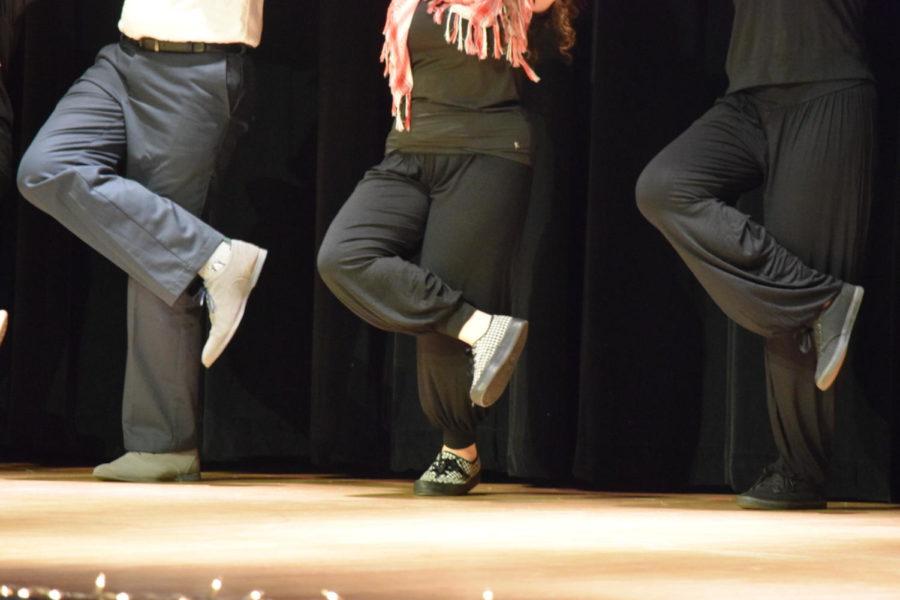Arabic Night expects 400-500 attendees on Saturday
The winning performance, Dabke, get their name from the Lebanese. The word originated from an Arabic word which means “stamping of the feet,” according to the group.
February 2, 2018
An organization is achieving their goal of not only introducing Iowa State to Arabic culture, but providing a place where Iowa State’s Arabic students can celebrate and share their culture, language and various other activities.
Saturday, Feb. 6, marks the second annual official Arabic Night hosted by the Arab Students Association. It is open to everyone
The first Arabic Night was a success, exceeding its expected attendance of roughly 150 students to a 300 student turnout.
Natali Jouzi, president of the Arabic Students association, also organized last year’s event and said she and her team were able to learn a lot from the success of last year’s Arabic Night and promises this year’s event will be bigger and better than ever.
The Great Hall is being reserved for “around 400 to 500 people.”
The event features a vast array of Middle Eastern foods including shirazi salad, a popular Iranian dish featuring a variety of fruits and vegetables such as tomato, cucumber and onion; baklava, a type of pastry made with chopped nuts and a form of syrup or honey; and kofta, a type of spiced lamb meatball, kabob.
The event will be headlined by Layaali Arabic Music Ensemble out of Massachusetts. The ensemble performs a myriad of classical Arabic songs.
Attendees will be able observe many aspects of Middle Eastern culture such as Dabke dancing, which is a popular folk dance combining elements of line and circle dancing, henna tattoos and calligraphy.
Jouzi also promised there will be even more representation for Middle Eastern countries and student groups at this year’s event.
“This year we’re having more booths in terms of more countries being presented. So, Saudi Club, the Egyptian Students Association, Almanaque, Kuwait and Palestine, they’re making separate booths to represent their country and region of the Middle East,” Jouzi said.
Arabic Night will also feature and showcase a number of foods and food related items of Middle Eastern origin, with Jouzi detailing the presence “a spices booth showcasing different spices used, and different tea cups and what is used to serve beverages.”
Jouzi stated while arranging both of Iowa State’s Arabic Nights has been a lot of hard work, she loves what she does and setting out on achieving her goals for Arabic Night.
“I enjoy what I do. I really enjoy bringing my culture to the Iowa State University campus, I want to show what Arab culture is like here in the Ames community and throughout Iowa as well,” Jouzi said.
According to Jouzi Arabic Night also receives not only student guests but people from around Ames and even people who drive in from places like Cedar Rapids, Des Moines and Iowa City.
With more food, a new headliner, more booths and representations of different facets of Middle Eastern culture, and art being showcased at this year’s Arabic Night promises to be a great experience for students and faculty alike to experience Middle Eastern culture and for our international students from the Middle East to hopefully get to experience a small slice of home.
Arabic night is free to attend and runs from 6 p.m. to 11 p.m.







